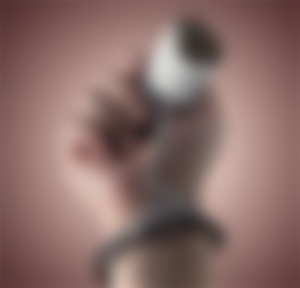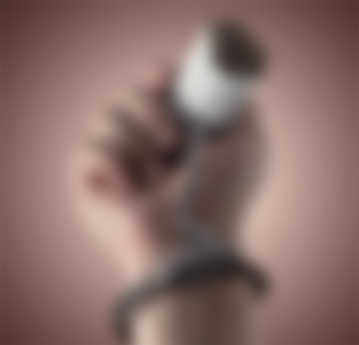First thing’s first, you must admit you have an addiction.
People are significantly more likely to have negative attitudes toward those suffering from drug addiction than those with mental illness, and don’t support insurance, housing, and employment policies that benefit those dependent on drugs.

Addiction is a serious issue the U.S. is currently facing an opioid epidemic, and excessive use of alcohol continues to be one of the leading preventable causes of death, according to the Centers for Disease Control and Prevention.
In the 1930s, when scientists first began to study addiction, the prevailing view was that addicts were simply those too weak in willpower to say no. Because addiction wasn’t seen as an illness, there was no concept of treating it with rehabilitation centers and 12-step programs. Instead, heavy users of drugs and alcohol were seen as degenerates and criminals and were treated accordingly they were imprisoned or institutionalized so as not to be a nuisance to society.
Drugs work by stimulating the reward circuitry in your brain. Typically, the reward circuit plays a role in learning it exists to ensure you learn to repeat activities that are life sustaining, like eating and sleeping. To do this, it releases dopamine a chemical that causes feelings of pleasure into your brain whenever you do an activity that is evolutionarily beneficial to your survival. As a result, an association is created between that activity and feelings of pleasure so that you’re motivated to do the activity again.

All addictions, whether to substances or to behaviors, involve physical or psychological processes. Each person’s experience of addiction is slightly different, but usually involves a cluster of some sort.
Signs and Symptoms of Addiction
Symptoms can only be experienced by the person with the addiction, whereas signs can be observed by other people.
You can never know what someone else is experiencing unless they tell you, so if you are concerned that someone else may have an addiction, look for signs as well as for symptoms.

You might see some of these signs and symptoms but not others in an addicted person, but you can still be addicted even if you do not have all of them.
Common signs of addiction include:
* Secretiveness.
* Lying.
* Stealing.
* Financially unpredictable, perhaps having large amounts of cash at times but no money at all at other times.
* Changes in social groups, new and unusual friends, odd phone conversations.
* Repeated unexplained outings, often with a sense of urgency.
*Drug paraphernalia such as unusual pipes, cigarette papers, small weighing scales, etc.
* “Stashes” of drugs, often in small plastic, paper or foil packages.
* Lack of control, or inability to stay away from a substance or behavior.
* Decreased socialization, like abandoning commitments or ignoring relationships.
* Ignoring risk factors, like sharing needles despite potential consequences.
* Physical effects, like withdrawal symptoms or needing higher dosage for effect.
It is not enough simply to “just say no.”
The person needs to develop alternative sources of joy and reward, and people who have been isolating themselves in order to drink or use drugs without inhibition may need to work in a purposeful way to re-acquire habitual “joy” social interactions, physical pleasures like a swim or a bike ride, and other healthy, enjoyable rewards.
The result is not only tolerance, the need to take increasingly larger doses to feel an effect, but also a loss of pleasure from normal activities that were reinforced by small amounts of dopamine like eating, sleeping, and hanging out with friends. Some people even become physically dependant on the drug, facing withdrawal symptoms like nausea, fatigue and insomnia without it. At this point, continuing to use the drug is no longer a matter of a choice both your body and your brain have become addicted to it, needing it to function and feel pleasure.

But how can a person with addiction avoid the cues that set off craving? How can they reliably get help?
Action steps for quitting an addiction:
* Admit there is a problem.
* Be accountable to someone.
* Write down the harmful effects your alcohol or drug addiction has.
* Cognitive Behavioral Therapy (CBT).
* Call for help – now.
* Create a support network.
* Review your past attempts at quitting.
* Distract yourself.
* Change your environment.
* Set a quit date.
* Love Yourself.
* Replace Your Old Habits with New Similar Ones.
* Stay Away from Temptations that Help Feed Your Addiction or Bad Habits.
* Take Small Steps to Setting Patterns.
* Break the habit.
* Exercise.
* Discover a new hobby.
Because change is so difficult, it's useful to have a guide when attempting to kick an addiction to drugs, alcohol or behavior. Addiction does not occur because of moral weakness, a lack of willpower or an unwillingness to stop.
However, research shows that addiction can be managed successfully. Individuals who enter and remain in treatment can manage their addiction and improve their quality of life.

Quitting an addiction is hard. Is there a cure for addiction? Not exactly, but there is a path to recovery. Simple steps to help you or a loved one stop addiction to drugs and alcohol. Become your strongest advocate and help yourself
Quitting is a gradual process it often takes several attempts. But you can do it...




